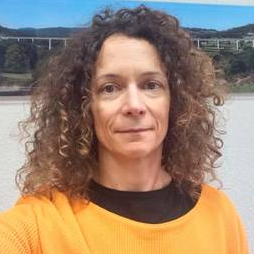Solid Waste Management: An International Outlook
A special issue of Sustainability (ISSN 2071-1050). This special issue belongs to the section "Sustainable Chemical Engineering and Technology".
Deadline for manuscript submissions: closed (31 January 2023) | Viewed by 16973
Special Issue Editors
Special Issue Information
Dear Colleagues,
We all are aware that currently, solid waste management is a major concern worldwide. The amount of waste generated has been growing, linked to the economic development of society, and this has led us to unsustainable lifestyles, in which large quantities of valuable resources are discarded as waste. Furthermore, solid waste disposal involves serious risks to human health and the environment that must be avoided.
Nowadays, this issue is approached from different starting points. In some places, management solutions are still being sought to prevent waste from harming people’s health. Meanwhile, this objective has been exceeded in others, where it is now a matter of improving the efficiency of the available techniques to make the most of resources with the lowest environmental burden, following the paradigms of zero waste and circular economy.
In this context, we should take advantage of the easy access to information offered by our interconnected world, and benefit from the recent technological developments that have hugely increased our ability to obtain and process large amounts of data, acquiring novel knowledge from them. This allows us to implement solutions developed in a given context to solve similar cases elsewhere. At the same time, we can characterize each problem more deeply and therefore adapt better alternative solutions.
This volume aims to provide a view of the breadth of perspectives with which solid waste management is tackled internationally. We invite you to submit selected reviews, original case studies, or research articles that present and analyze the following:
- novel solutions to specific waste management challenges that can serve as a reference to others,
- proposals for new methods or results of environmental monitoring that provide new information useful to improve the design or control practices in waste management systems and facilities,
- innovative strategies, technologies, or methods for solid waste management within the framework of the circular economy.
Prof. Dr. Amaya Lobo García de Cortázar
Prof. Dr. Ana Lorena Esteban García
Prof. Dr. María del Consuelo Hernández Berriel
Guest Editors
Manuscript Submission Information
Manuscripts should be submitted online at www.mdpi.com by registering and logging in to this website. Once you are registered, click here to go to the submission form. Manuscripts can be submitted until the deadline. All submissions that pass pre-check are peer-reviewed. Accepted papers will be published continuously in the journal (as soon as accepted) and will be listed together on the special issue website. Research articles, review articles as well as short communications are invited. For planned papers, a title and short abstract (about 100 words) can be sent to the Editorial Office for announcement on this website.
Submitted manuscripts should not have been published previously, nor be under consideration for publication elsewhere (except conference proceedings papers). All manuscripts are thoroughly refereed through a single-blind peer-review process. A guide for authors and other relevant information for submission of manuscripts is available on the Instructions for Authors page. Sustainability is an international peer-reviewed open access semimonthly journal published by MDPI.
Please visit the Instructions for Authors page before submitting a manuscript. The Article Processing Charge (APC) for publication in this open access journal is 2400 CHF (Swiss Francs). Submitted papers should be well formatted and use good English. Authors may use MDPI's English editing service prior to publication or during author revisions.
Keywords
- waste management
- circular economy
- zero waste
- environmental monitoring
- waste minimization
- reuse
- recycle
- recovery
- pollution
- smart technologies







